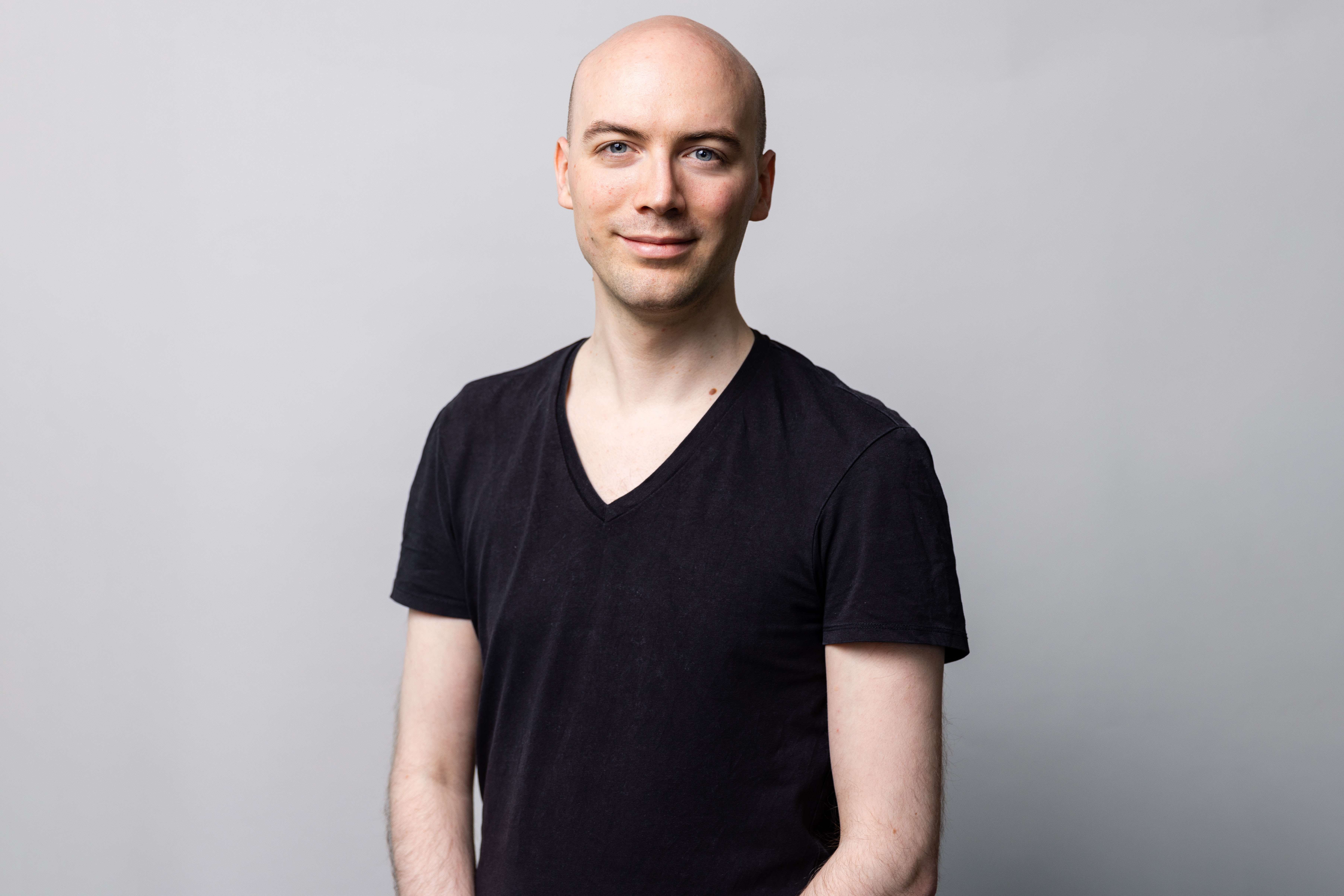In 2024 Dr. Niklas Gebauer earned his PhD with the highest honor, summa cum laude, for his dissertation on "Autoregressive Generative Neural Networks for the Inverse Design of 3D Molecular Structures." At this time, he was a researcher in the Machine Learning Group, supervised by BIFOLD co-director Prof. Dr. Klaus-Robert Müller. He was also part of the BASLEARN joint lab between BASF and TU Berlin and completed a research internship at Google DeepMind.
His research combines machine learning and quantum chemistry, focusing on developing generative models that help design new molecules and materials while taking spatial information into account. After a short break from scientific research, Niklas returned to BIFOLD at the end of April 2025 to delve back into generative models for molecules and materials.
Describe your research focus in understandable terms and/or with an example of application?
Niklas: Identifying molecules that are suitable for specific applications is a very complex and time-consuming process, but it is essential to advance in many areas of research. For example, there is a high demand for novel drugs and vaccines to treat diseases. Similarly, improving batteries and solar cells is an important factor in the transition to renewable energy. My work focuses on developing AI-driven models that accelerate the identification of suitable molecules. The goal is to enable the inverse design of molecules, which means that our model generates candidate molecules based on a set of target properties that are specified by an expert. It is important to note that our models do not physically build molecules. Everything we do is based on data and happens on the computer. We generate 3d models of molecules by determining which atoms they are made of and how these atoms should be arranged in space. This already poses a highly challenging research question that was basically unanswered when I began my PhD. The scientific community has made significant progress in the inverse design of 3d molecules in recent years and we have contributed through the pioneering work presented in my dissertation.
What´s going to be next in your career: What are your recent projects or future projects?
Niklas: After finishing my PhD in August 2024, I took time to reflect on my achievements and future plans. I want to stay in Berlin for a few more years, focusing on hands-on research. I’m particularly interested in corporate labs and startups working on machine learning for quantum chemistry, but for now, I’ll be joining BIFOLD as a postdoc. I’m excited to shape projects and collaborate with PhD students, as I benefited greatly from the guidance of postdocs during my own PhD.
I plan to explore generative models for molecules and materials, shifting from benchmarking small molecules to focusing on specific applications with realistic data and relevant target properties. Collaborating on synthesizing molecules proposed by these models would also help refine our work and bring us closer to real-world applications.
Which living or historical scientist has fascinated you and why?
Niklas: I am fascinated by the scientific community as a collaborative effort that enhances our understanding of the world and benefits humanity. It fosters a culture of generating, sharing, and discussing insights, which is essential for building a stable and sustainable society.
AI is considered a disruptive technology - in which areas of life do you expect the greatest upheaval in the next ten years?
Niklas: AI is set to significantly transform how we work, with its integration already visible across various industries and job levels. It can perform tasks faster and, in some cases, more accurately than humans, like generating texts and assisting medical professionals with early disease detection. As AI capabilities improve in the next decade, we'll need to adapt our skills and learn how to effectively use this technology.
However, there are important societal concerns. Marginalized communities may be at greater risk of job loss due to automation. Public discussions involving society, politics, and experts are essential to navigate the appropriate use of AI and address issues like bias in job application screenings. While the potential of AI is promising, so are its risks, necessitating careful regulation. The EU has begun this process, and despite criticisms regarding restrictions on AI, I believe a cautious approach is vital to address its societal implications.
Where would one find you, if you are not sitting in front of the computer?
Niklas: There are many places where one could find me. For instance, I might be rocking in the crowd of a concert, singing in a karaoke bar, sitting in my room playing the piano or the guitar, meeting friends for prolonged board game evenings, playing soccer on a small pitch, watching a match of my favourite team VfL Wolfsburg in their home arena, or learning something new at a museum (I attached a picture of me in the botanical garden of Berlin).


